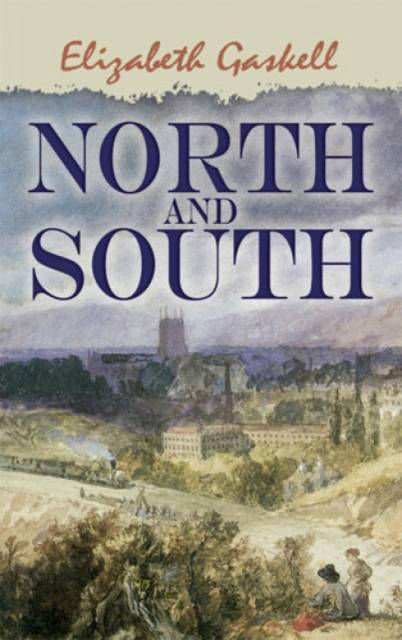
Bedankt voor het vertrouwen het afgelopen jaar! Om jou te bedanken bieden we GRATIS verzending (in België) aan op alles gedurende de hele maand januari.
- Afhalen na 1 uur in een winkel met voorraad
- Gratis thuislevering in België
- Ruim aanbod met 7 miljoen producten
Bedankt voor het vertrouwen het afgelopen jaar! Om jou te bedanken bieden we GRATIS verzending (in België) aan op alles gedurende de hele maand januari.
- Afhalen na 1 uur in een winkel met voorraad
- Gratis thuislevering in België
- Ruim aanbod met 7 miljoen producten
Zoeken
€ 13,45
+ 26 punten
Uitvoering
Omschrijving
A crisis of conscience uproots a clergyman's family from the pastoral beauty of the south, sending them to a dreary city in the industrial north. Margaret Hale is initially appalled by the unrefined town of Milton and its population of factory workers. But after befriending a local family, she develops a sense of sympathy for the struggles of the poor. The demands of Margaret's awakening social conscience are further challenged by her attraction to John Thornton, self-made man and wealthy factory owner.
Praised by Charles Dickens as an "admirable story, full of character and power," Elizabeth Gaskell's 1855 novel unfolds across the social divides of a changing world. The romance between the haughty but sensitive heroine and an intelligent, dynamic man of lower social status touches upon political, philosophical, and economic issues. An unflinching depiction of the bleak conditions of the working poor as well as a commentary on the mid-Victorian era's class conflicts, this richly textured tale raises timeless questions about the nature of social authority and protest.
Praised by Charles Dickens as an "admirable story, full of character and power," Elizabeth Gaskell's 1855 novel unfolds across the social divides of a changing world. The romance between the haughty but sensitive heroine and an intelligent, dynamic man of lower social status touches upon political, philosophical, and economic issues. An unflinching depiction of the bleak conditions of the working poor as well as a commentary on the mid-Victorian era's class conflicts, this richly textured tale raises timeless questions about the nature of social authority and protest.
Specificaties
Betrokkenen
- Auteur(s):
- Uitgeverij:
Inhoud
- Aantal bladzijden:
- 464
- Taal:
- Engels
- Reeks:
Eigenschappen
- Productcode (EAN):
- 9780486479521
- Verschijningsdatum:
- 13/06/2012
- Uitvoering:
- Paperback
- Formaat:
- Trade paperback (VS)
- Afmetingen:
- 130 mm x 208 mm
- Gewicht:
- 430 g

Alleen bij Standaard Boekhandel
+ 26 punten op je klantenkaart van Standaard Boekhandel
Beoordelingen
We publiceren alleen reviews die voldoen aan de voorwaarden voor reviews. Bekijk onze voorwaarden voor reviews.












